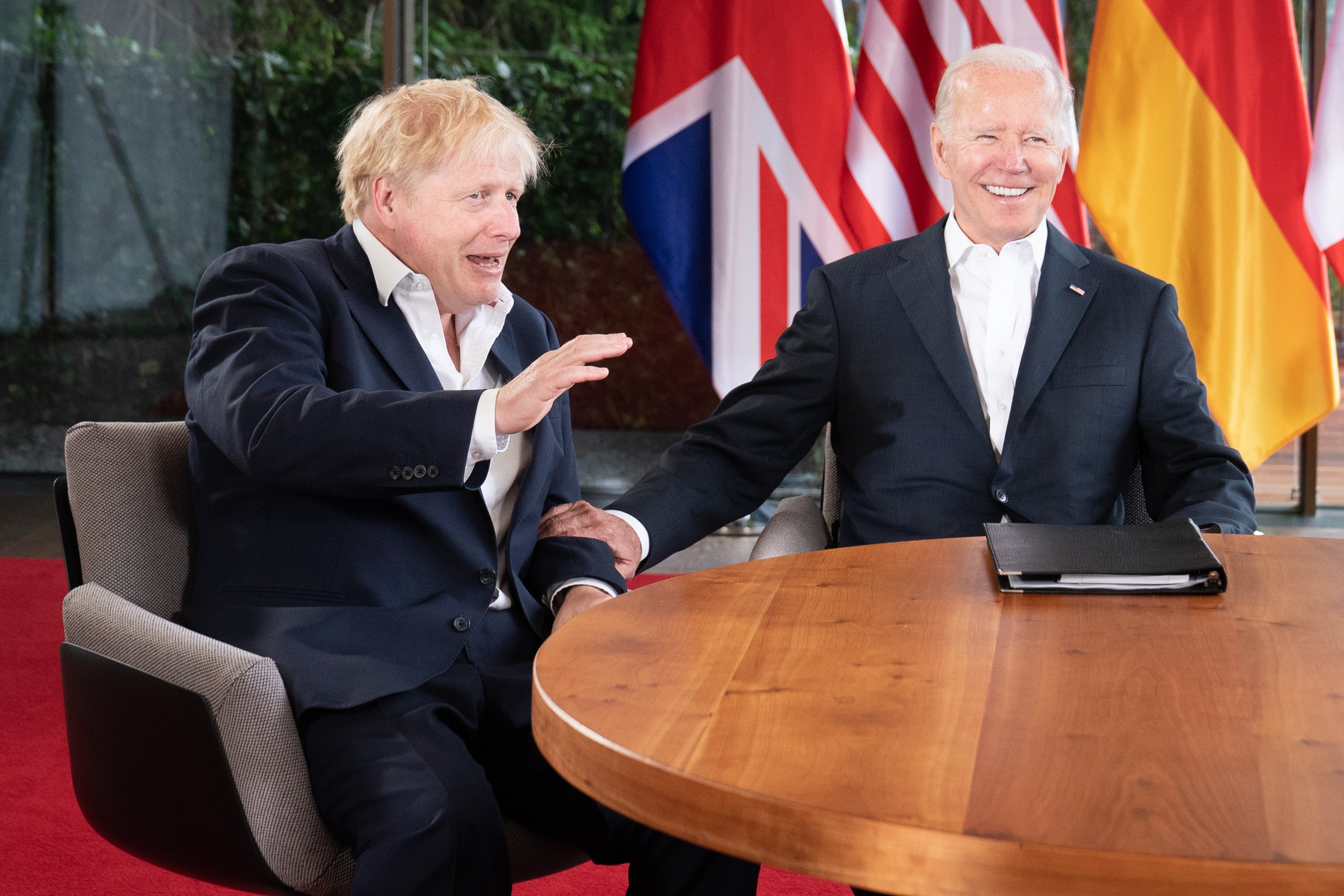Boris Johnson faces defence spending row as Nato leaders gather
Soaring inflation and the battered public finances have left a Tory commitment to annual real-terms increases in defence spending in jeopardy.

Your support helps us to tell the story
From reproductive rights to climate change to Big Tech, The Independent is on the ground when the story is developing. Whether it's investigating the financials of Elon Musk's pro-Trump PAC or producing our latest documentary, 'The A Word', which shines a light on the American women fighting for reproductive rights, we know how important it is to parse out the facts from the messaging.
At such a critical moment in US history, we need reporters on the ground. Your donation allows us to keep sending journalists to speak to both sides of the story.
The Independent is trusted by Americans across the entire political spectrum. And unlike many other quality news outlets, we choose not to lock Americans out of our reporting and analysis with paywalls. We believe quality journalism should be available to everyone, paid for by those who can afford it.
Your support makes all the difference.Boris Johnson faces a row over increased defence spending as he heads to a Nato summit likely to be dominated by the need to boost military resources to counter Russia.
The Government could be forced to abandon a commitment to increase the defence budget by 0.5% above inflation, a senior source acknowledged.
With inflation set to hit 11% this year and the public finances battered by the impact of the pandemic, the source admitted the pledge made in the 2019 election manifesto might be dropped.
“The manifesto was written before £400 billion had to be spent locking people up for their own safety because of the global pandemic,” a senior Government source said.
“There is a reality check on things that were offered in a different age which is the only reasonable thing that we can expect.”
The source said “the intention is always to honour manifesto commitments but they were made before £400 billion was spent coping with a global pandemic that none could have possibly foreseen”.
Meanwhile, Mr Johnson has defended the Government’s record on defence spending amid reports that Defence Secretary Ben Wallace has asked for a 20% increase to counter the threat from Russia.
Speaking in Germany on the final day of the G7 summit before heading off to the Nato gathering in Madrid, the Prime Minister said the Government had already made “massive commitments” to the UK armed forces.
He said the Government regarded the Nato minimum of spending 2% of GDP on defence as “a floor not a ceiling”.
“Clearly we have to respond to the way threats continue to change but don’t forget that we now have got a defence budget that is £24 billion bigger under the spending review – the biggest increase since the end of the Cold War.
“Last year the UK was the third biggest defence spender in the world. We are making massive commitments. We have more than met our pledge to exceed the 2% floor.”
Mr Wallace was said to have made the call in a letter to Mr Johnson ahead of the Nato summit in the Spanish capital, which begins with a formal dinner on Tuesday night.
A defence source did not deny the reports, saying: “We do not comment on alleged leaks.
“The Defence Secretary and the Prime Minister have always said that the Government will respond to any changes in threat which is why in 2020 the Ministry of Defence received a record defence settlement.”
Ahead of the Nato summit, the alliance’s general secretary, Jens Stoltenberg, set out plans for a dramatic expansion in the number of personnel forming part of the high-readiness force from 40,000 to 300,000 in response to the threat posed by Russia.
The move would form part of a package that amounts to “the biggest overhaul of our collective deterrence and defence since the Cold War”, he said.
Tobias Ellwood, Tory chairman of the Commons Defence Committee, has argued that UK spending should increase to 3% of GDP and cuts in troop numbers should be reversed.
The Nato summit in Madrid follows the G7 gathering in Germany, where the diplomatic response to the war in Ukraine overshadowed other subjects.
The military and security response to the crisis in eastern Europe is expected to be at the forefront of the leaders’ minds in Madrid.